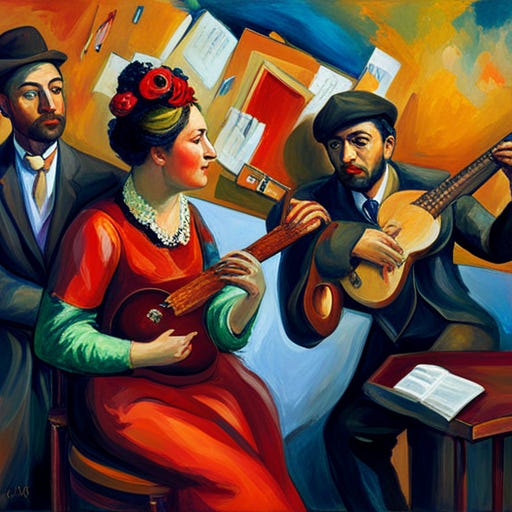Juno and Avos
In December 2021 my wife and I took our girls Hannah (15) and Mia Sarah (7) to see Steven Spielberg’s revival of West Side Story (my son Jonah was away to college).
As I started writing about West Side Story, I inadvertently wandered into deep corridors of memory and realized that musicals were an important texture in my life and I had not given them enough limelight in my writings. I intend to correct this unfair indiscretion with a series of articles about my favorite musicals. Strangely, I also realized that I don’t have a favorite musical. Each musical I am about to write about was a favorite, just at different times of my life.
In separate installments I’ll discuss Juno and Avos, Evita, The Phantom of the Opera, Les Misérables, West Side Story, Aida, Man of La Mancha, and maybe some others. (Those are all I have written about so far.)
Juno and Avos
My journey with musicals began almost forty years ago, in 1983.
Now, I am quite aware that I may lose some of my readers here, as I am about to write about a Russian musical. Feel free to skip this one – I’ll write about Evita in the next installment.
I was ten years old, still in the USSR. My whole family – father, mother, two brothers and I – gathered around the TV to watch Juno and Avos. This musical was officially categorized as “rock opera,” but the line between a rock opera and a musical is very thin. A rock opera is a musical with less speaking and more electric guitars.
Watching Juno and Avos was a big deal for us. It had premiered a couple years earlier at the Lenkom Theatre in Moscow and was an enormous success. This was before VCRs, and TV was the only way for us to see it other than travelling to Moscow. Juno and Avos are the names of two Russian ships that went on an expedition to North America in 1805. It is the tragic (true!) love story of the Russian explorer Count Nikolai Rezanov, who falls in love with Conchita Arguello, the daughter of the Commandant of San Francisco. Nikolai and Conchita get secretly engaged, but it seems that before they can marry, Nikolai must return to Russia to seek the Tsar’s permission, since she is Catholic and he is Russian Orthodox.
Rezanov promises to return, but on the voyage home he contracts pneumonia. Then he takes a tumble from his horse. (Did I mention that Nikolai is 41, Conchita 15?) The combination proves fatal. Learning that Nikolai has died, Conchita refuses to believe it and vows to wait for him, which she does, refusing many suitors, until her own death 37 years later.
As I have mentioned many times before, sitting in front of the computer early in the morning for hours is for me like a trip to the psychiatrist. It is incredibly therapeutic, brings on self-reflection, unearths a lot of memories, is calming, and allows me to medicate on self-prescribed coffee.
One of those memories is of my brother Alex playing a guitar. Alex and my oldest brother, Leo, were sent to music school to study piano for a few years. They both hated it. A few years later, when he was fifteen, Alex taught himself to play the guitar. He had a very limited repertoire, but a song from Juno and Avos was part of it.
I got to see Juno and Avos live in November 1991 at the Lenkom Theatre with the original cast, a few weeks before we left Russia for the United States. It is one of the dearest experiences of my life.
Here are a few excerpts from this rock musical:
You can watch the full musical here:
Vitaliy Katsenelson is the CEO at IMA, a value investing firm in Denver. He has written two books on investing, which were published by John Wiley & Sons and have been translated into eight languages. Soul in the Game: The Art of a Meaningful Life (Harriman House, 2022) is his first non-investing book. You can get unpublished bonus chapters by forwarding your purchase receipt to bonus@soulinthegame.net.




